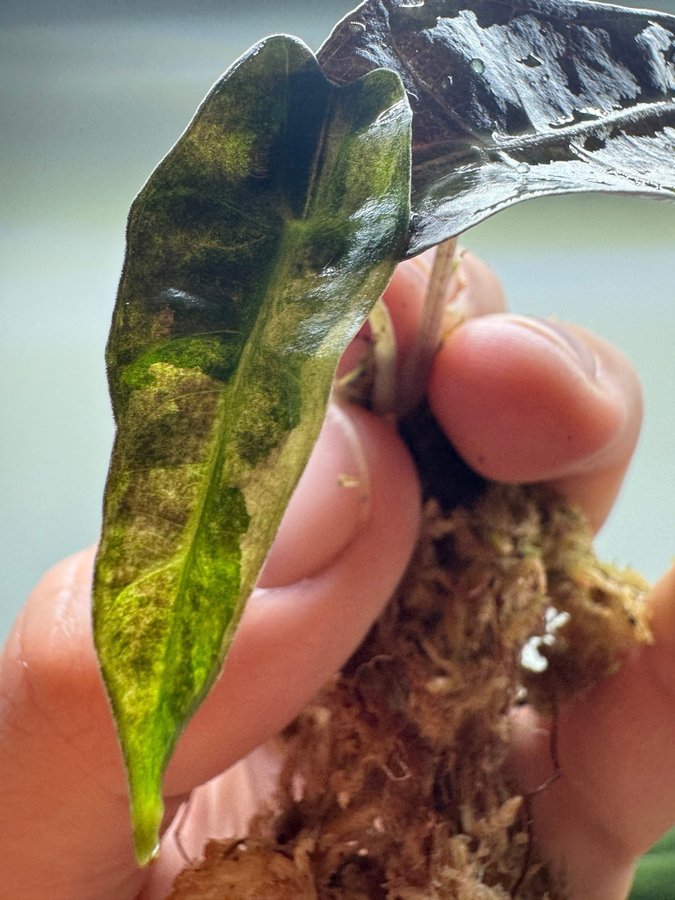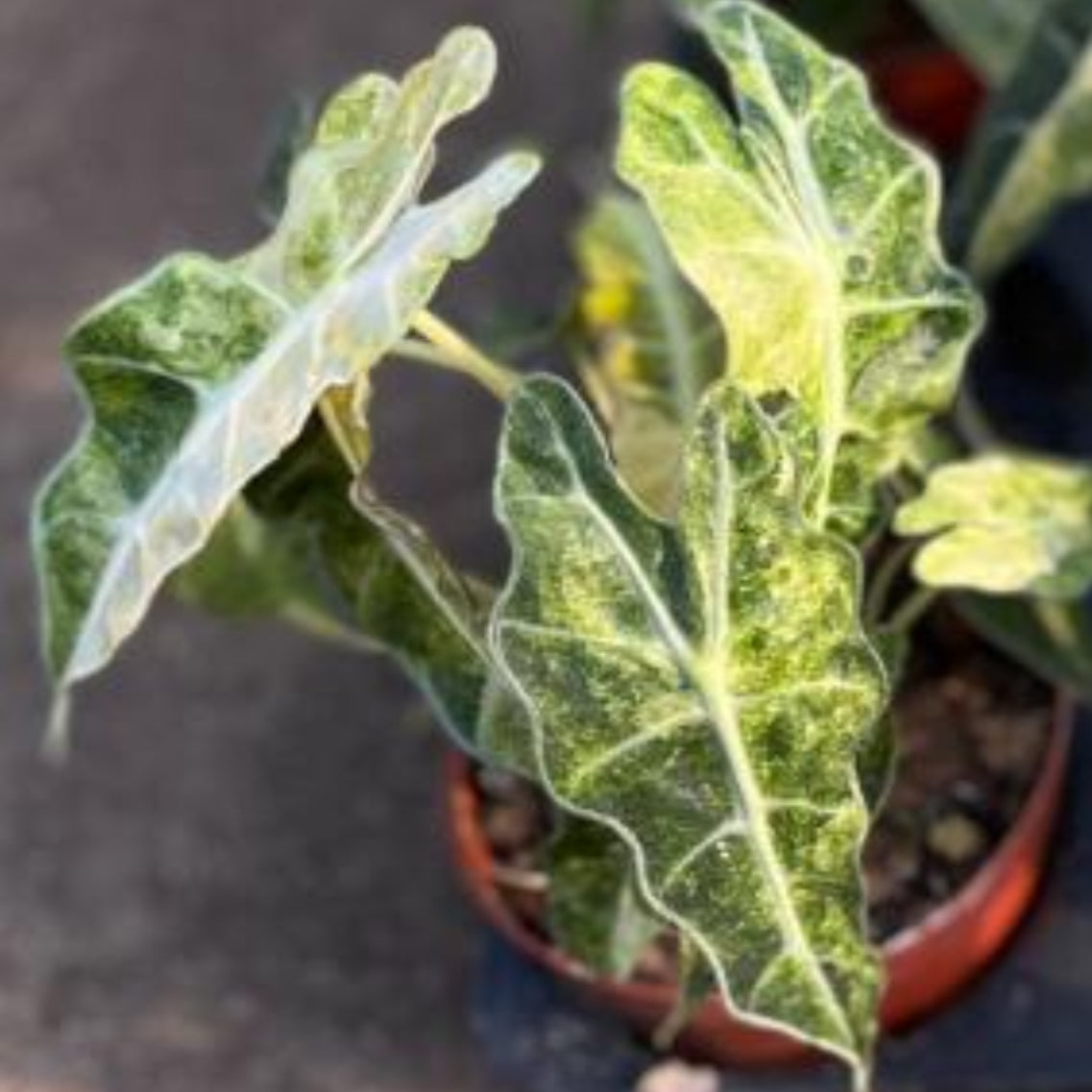Plantthatplant
Alocasia polly Aurea
Alocasia polly Aurea
Couldn't load pickup availability
About
About
Alocasia polly 'Aurea' – A Rare Variegated Alocasia with Golden Accents
Alocasia polly 'Aurea' is a stunning variegated Alocasia that takes the dramatic appeal of the classic Polly and elevates it with golden-yellow variegation. This rare and exotic plant features sharply defined, arrow-shaped leaves with bold venation and vivid aurea (yellow) streaks, making it a standout in any rare plant collection. Compact and archite
Specification
Specification
Care guide
Care guide
5 Care Tips for Alocasia polly 'Aurea'
Bright, Indirect Light – Helps maintain vibrant yellow variegation without burning delicate leaves.
Well-Draining Soil – Use a mix of perlite, coco coir, and bark to promote airflow and prevent root rot.
Water When Top Layer Is Dry – Keep the soil lightly moist, but allow the top inch to dry before watering.
High Humidity (60–80%) – This variegated Alocasia thrives in humidity; mist regularly or use a humidifier.
Warm Temperatures – Ideal range is 20–28°C (68–82°F); protect from cold drafts and temperature fluctuations.
Share




